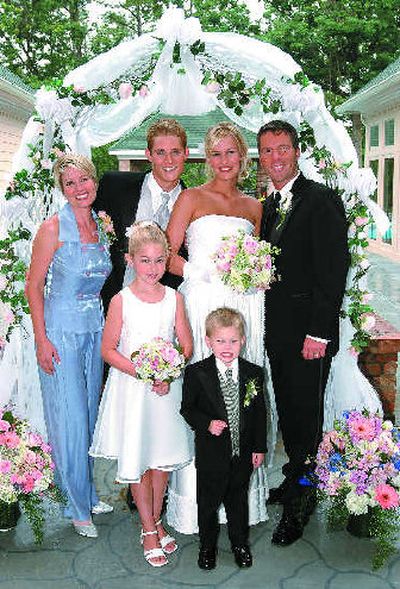New wedding etiquette changes rules

Wedding traditions can and do change. And, sometimes, traditions should change.
So says Peggy Post, the great-grand-daughter-in-law of Emily Post, today’s leading authority on etiquette and the author of a dozen books.
Here are a few established wedding traditions that have taken on a fresh twist in recent years:
Old: The bride’s family pays for the wedding.
New: Today, just 27 percent of weddings are paid for by the bride’s family. Even a simple affair can have a significant cost, so it is not surprising that families attack this in different ways. The bride’s family may pay. The couple themselves may pay, or the groom’s family, the bride’s family and the couple may share expenses. What’s important is that the bride- and groom-to-be discuss the budget early to ensure a smooth path to the altar.
Old: There should be no more than six bridesmaids and six groomsmen.
New: You can have as many or as few attendants as you want; there is no maximum and minimum. Even at a big, formal wedding, just one or two attendants on each side are acceptable. Because groomsmen/ushers have the responsibility of seating guests at the ceremony, the rule of thumb is one usher for every 50 guests, and it’s fine to have more ushers than bridesmaids.
Old: The bridal bouquet must be white or, at the very least, subdued.
New: Bouquets can be as beautiful and varied as the brides who carry them.
Old: Traditional household appliances and linens are the best wedding presents.
New: Some couples today have already combined households and may not need another blender, compact toaster oven or set of thirsty bath towels. Gift registries are now the norm, and handy things they are for guests who may not know the couple as well as they might like. Don’t be surprised by a registry that may contain non-traditional items like chipping in on vacations and mortgage payments.
Old: Guests shouldn’t wear white or black to a wedding.
New: You can wear white as long as it doesn’t look like a wedding dress: it’s the bride’s day. If you wear black, it should look like you are attending a wedding, not a funeral. Also consider time of day, location and any rules of attire specified by religion (for example, bare shoulders or too much cleavage or leg showing).
Old: All guests should receive hand-written thank you notes for their gifts.
New: Sorry, there’s no changing this one! All guests should receive hand-written thank you notes for their gifts. Save the e-mails for lunch dates and business-related thank yous.